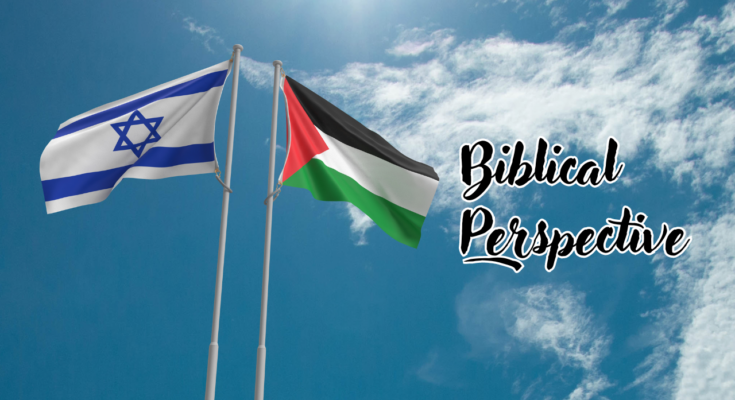STANDTOJESUS – Why israel Attacking Gaza ? – In the ongoing conflict between Israel and Palestine, the roots delve deep into historical, geopolitical, and religious aspects. The Bible, a revered text for both Jews and Christians, plays a significant role in shaping the perspectives and justifications for actions in this complex scenario.
The Biblical Promises and Claims
Conflict between Israel and Gaza – The fundamental premise of Israel’s claim to the land lies in the promises made in the Christian Bible. In Genesis 12:7, God’s covenant with Abraham pledges the inheritance of the land to his descendants, particularly the land of Canaan. This covenant has been deeply embedded in the beliefs of the Jewish population, solidifying their claim to Gaza as part of Canaan and justifying their endeavor to assert control over it.
Genesis 13:14-17 further solidifies the belief, portraying the divine assurance of land inheritance to Abraham’s lineage. This conviction shapes Israel’s stance, justifying their presence and actions in the region.
However, the Palestinian narrative also finds resonance within the Bible. The book of Exodus, particularly in Exodus 6:4, speaks of God’s promise to the Israelites to return them to the land of their ancestors. Palestinians perceive this as a validation of their historical ties to the region, contesting Israel’s exclusive claim.
Motivations Behind Israel’s Offensive
Israel’s military actions against Gaza have been multifaceted, with several underlying motives. The prominent reasons include self-defense against Hamas, the desire to expand territory, the need to maintain the blockade of Gaza, and the aim to control Gaza’s rich natural resources.
Israel initiated the blockade of Gaza in 2007, aiming to prevent Hamas from acquiring weapons and other supplies. Israel asserts that this blockade is essential to safeguard its security interests, an argument rooted in the need for self-preservation, which aligns with biblical principles.
Hamas, a militant group controlling Gaza, has consistently launched attacks, including rocket strikes, towards Israel, compelling defensive responses. This defensive stance aligns with the biblical principle of self-preservation, although Matthew 5:44 emphasizes love and prayer for enemies, this verse often poses a dilemma in conflict.
Moreover, the expansion of territory and control of resources in the region becomes a point of contention. Israel’s occupation of Gaza since 1967, marked by settlements and a desire to further extend their dominion, leads to a complex interplay between political ambitions and biblical interpretations.
Here is an explanation from various sources about the reasons “why is Israel attacking Palestine or Gaza”:
- According to the official website of the Israeli government https://www.gov.il/en, Israel attacks Gaza to defend itself from Hamas attacks and to maintain the Gaza blockade. The website states, “Israel has the right to defend itself from Hamas attacks and to prevent Hamas from obtaining weapons and other supplies.”
- According to the official website of the Palestinian Ministry of Foreign Affairs, Israel attacks Gaza to expand its territory and to expel Palestinians from their land. The website states, “Israel uses military attacks as a means to achieve its political goals, namely to expand its territory and to expel Palestinians from their land.”
- According to the Human Rights Watch website Israel vs Palestina Conflict, Israel attacks Gaza to punish Hamas and suppress Palestinian resistance. The website states, “Israel’s attacks on Gaza have resulted in thousands of civilian casualties and the destruction of civilian infrastructure.”
The Ethical Dilemma
Although the Bible stands as the foundational text that shapes beliefs and claims, the Bible in the “The New Testament” actually also teaches against violence and supports love and forgiveness. The Bible does not explicitly condone or prohibit Israel’s attacks on Gaza. The Bible also teaches that we should love our enemies and pray for those who persecute us (Matthew 5:44).
The Palestinian-Israeli conflict in Gaza, although rooted in historical claims and religious interpretations, often faces moral and ethical paradoxes. Matthew 5:44 above, which summarizes the essence of forgiveness and love, is in stark contrast to the reality of this conflict.
Conclusion “Why is israel Attacking Gaza”
The Israel-Gaza conflict is an intricate mesh of history, politics, and religion, where interpretations of the Bible have been used to justify actions on both sides. The multifaceted nature of this conflict is a reminder of the complexity inherent in reconciling historical claims with ethical teachings.
While the Bible serves as a foundational text for both sides, its interpretations in this context showcase the interpretative diversity and the challenges in resolving one of the world’s enduring conflicts. The pursuit of peace and resolution in this conflict requires a delicate balance between historical claims and the ethical and moral teachings of the Bible.
Additional Bible verses related to the Covenant Land for the people of Israel
1. Genesis 15:18-21:
15:18 On that day the LORD made a covenant with Abram and said, “To your offspring I give this land, from the river of Egypt to the great river, the river Euphrates: 15:19 the land of the Kenites, Kenizzites, Kadmonites, 15:20 Hittites, Perizzites, Rephaites, 15:21 Amorites, Canaanites, Girgashites, and Jebusites….”
2. Deuteronomy 7:1-2: (Attitude towards the inhabitants of the land of Canaan):
7:1 “When the LORD your God brings you into the land that you are entering to take possession of it, and clears away many nations before you—the Hittites, Girgashites, Amorites, Canaanites, Perizzites, Hivites, and Jebusites, seven nations more numerous and mightier than you— 7:2 and when the LORD your God gives them over to you, and you defeat them, then you must devote them to complete destruction. You shall make no covenant with them and show no mercy to them…..”
3. Joshua 11:16-17:
11:16 So Joshua took all that land, the hill country and all the Negeb and all the land of Goshen and the lowland and the Arabah and the hill country of Israel and its lowland, 11:17 from Mount Halak, which rises towards Seir, as far as Baal-gad in the valley of Lebanon below Mount Hermon. And he captured all their kings and struck them and put them to death.
4. Joshua 11:22-23:
11:22 There was none of the Anakim left in the land of the people of Israel. Only in Gaza, in Gath, and in Ashdod did some remain. 11:23 So Joshua took the whole land, according to all that the LORD had spoken to Moses. And Joshua gave it for an inheritance to Israel according to their tribal allotments. And the land had rest from war.
5. Joshua 13:1-2:
13:1 Now Joshua was old and advanced in years, and the LORD said to him, “You are old and advanced in years, and there remains yet very much land to possess. 13:2 This is the land that yet remains: all the regions of the Philistines, and all those of the Geshurites.



